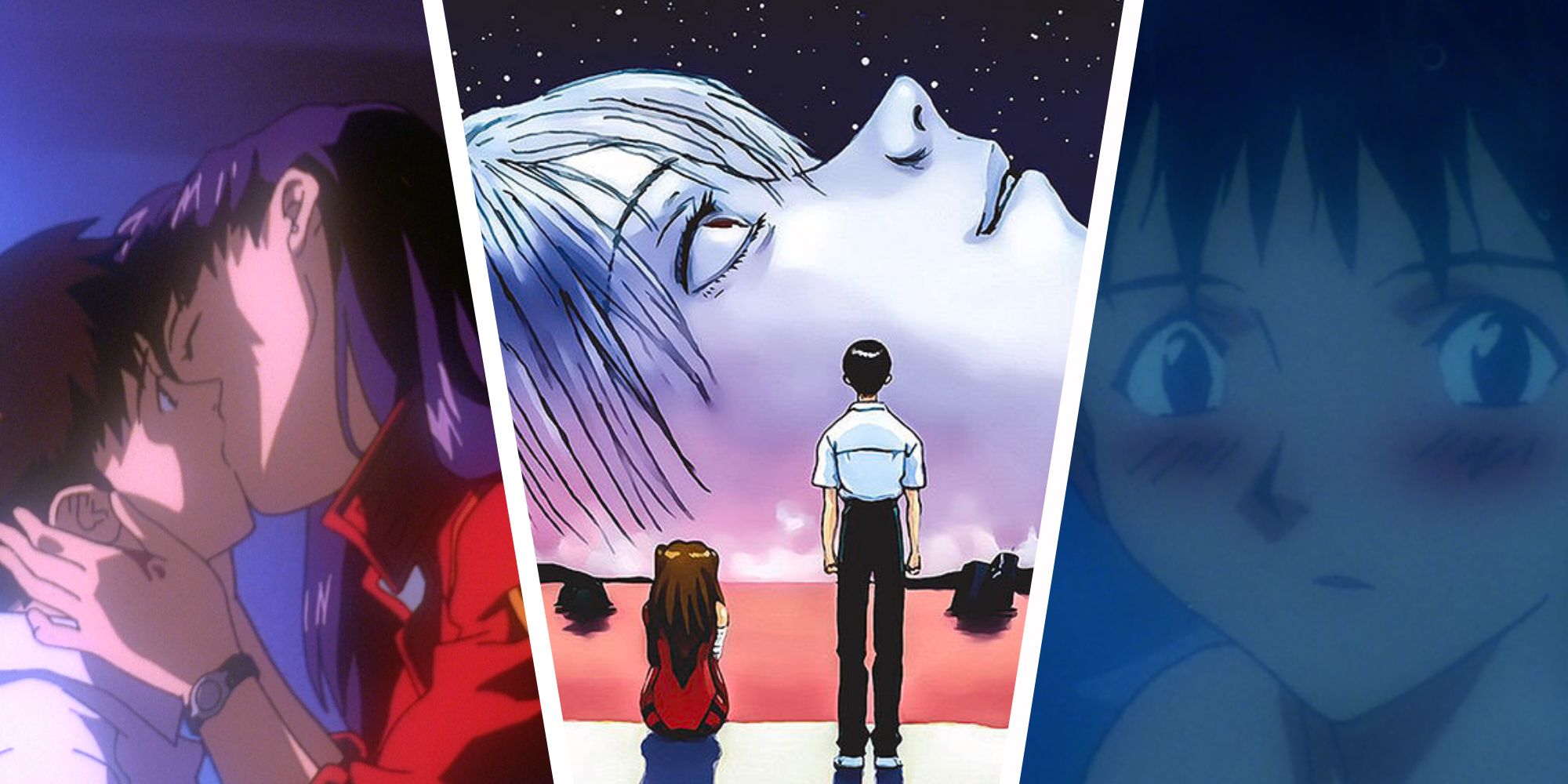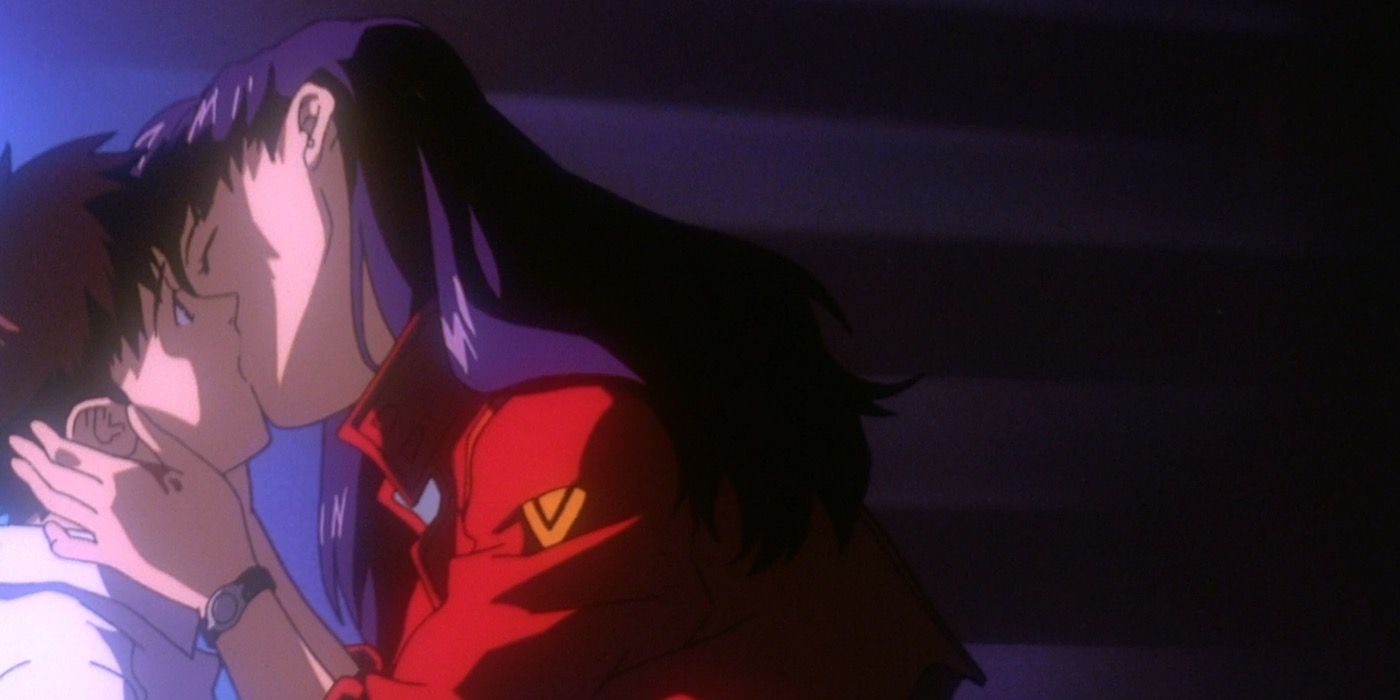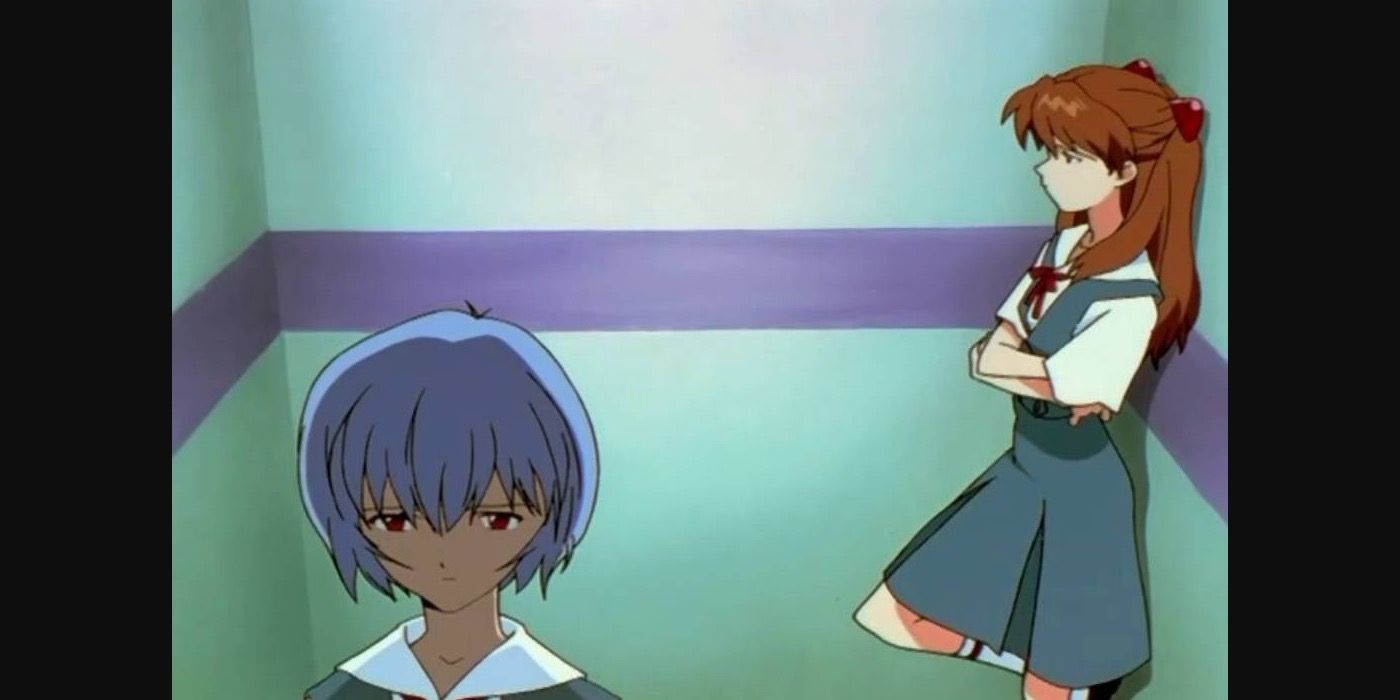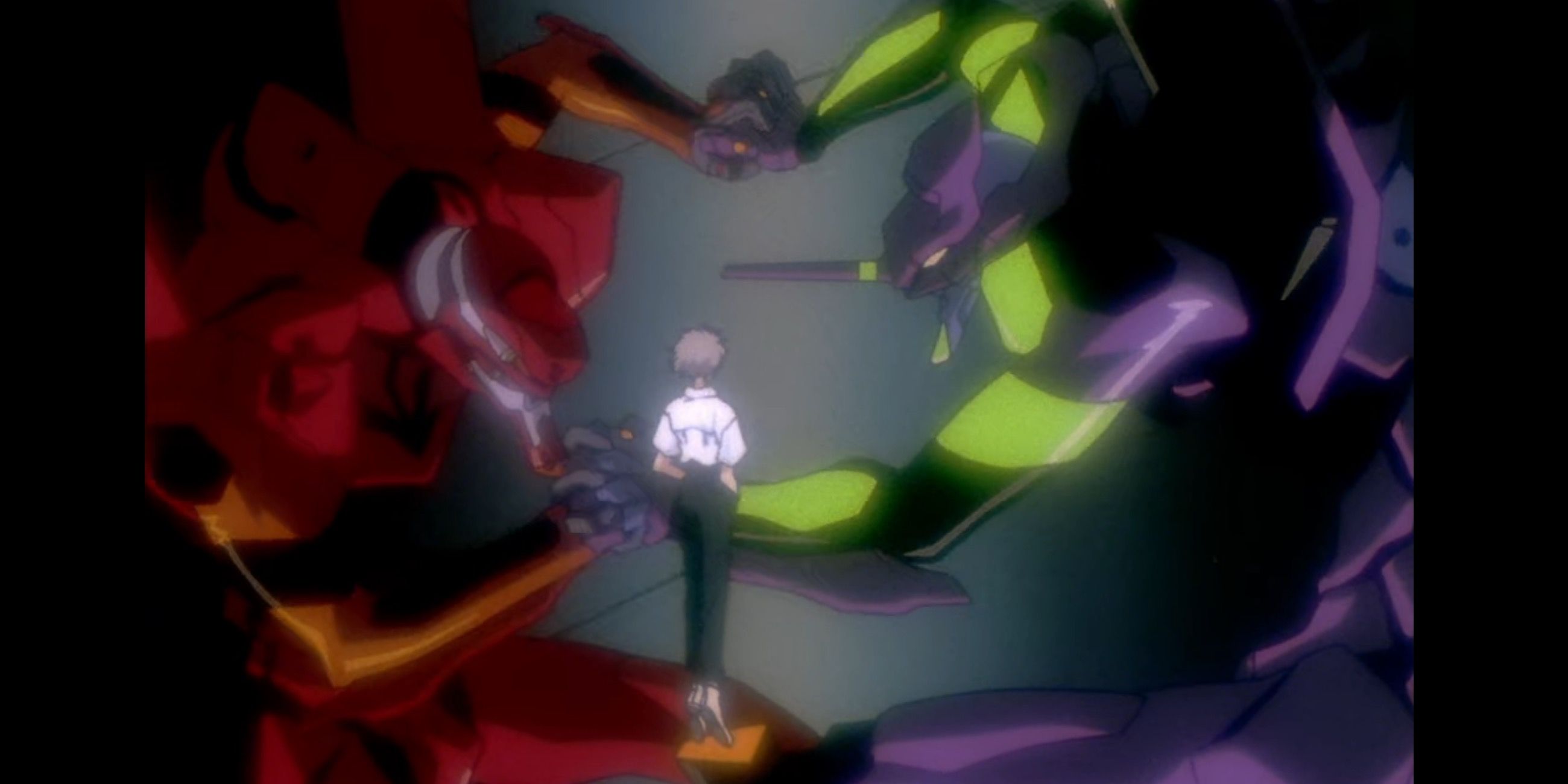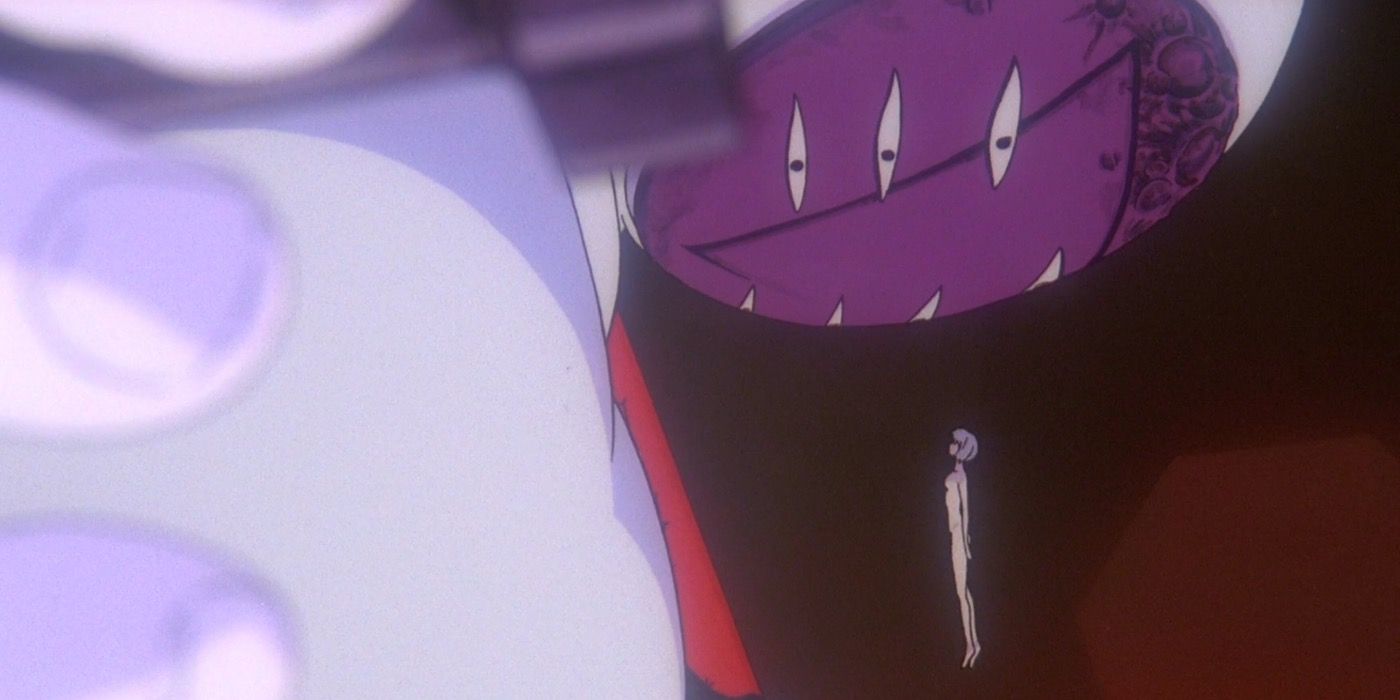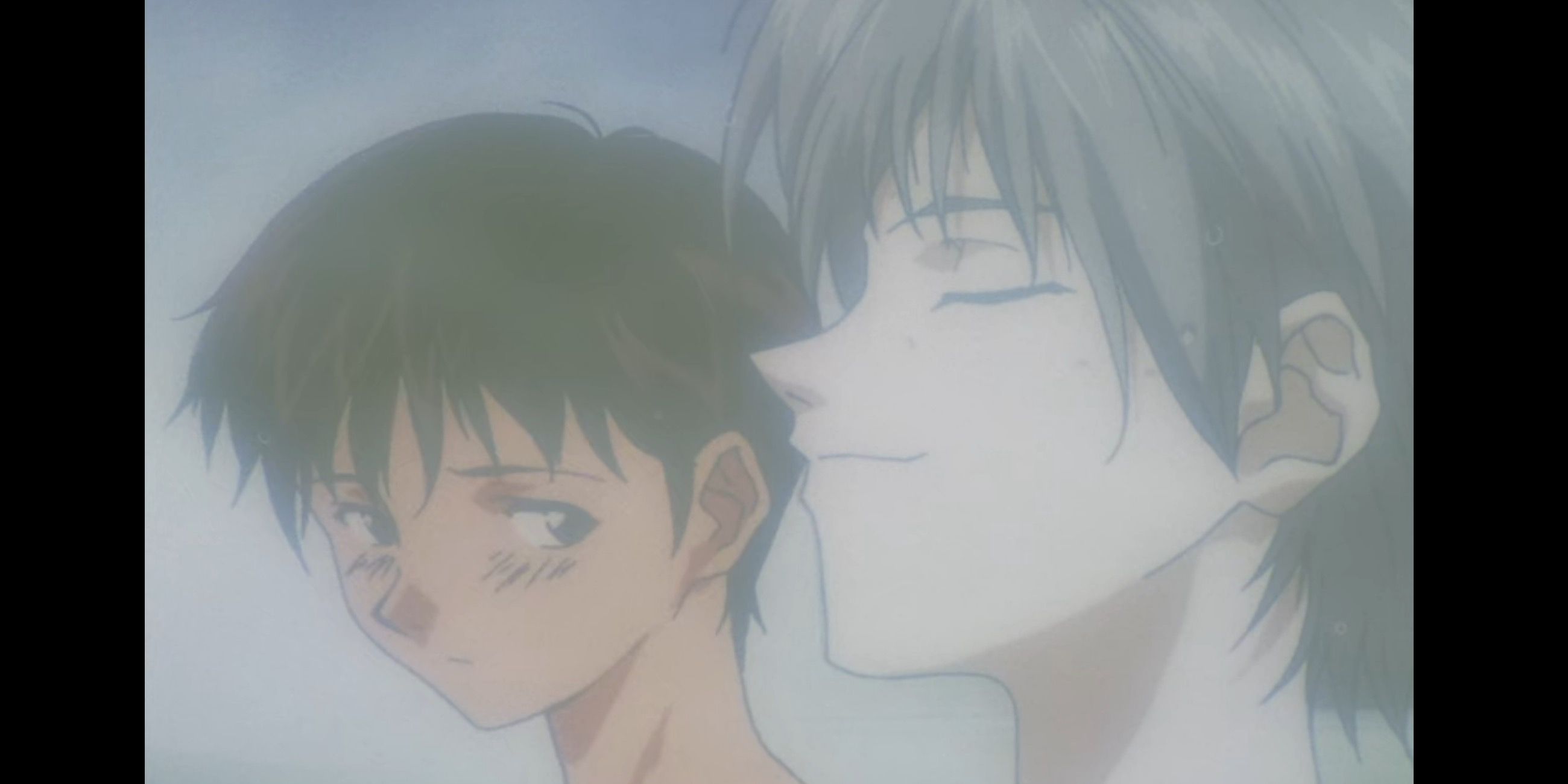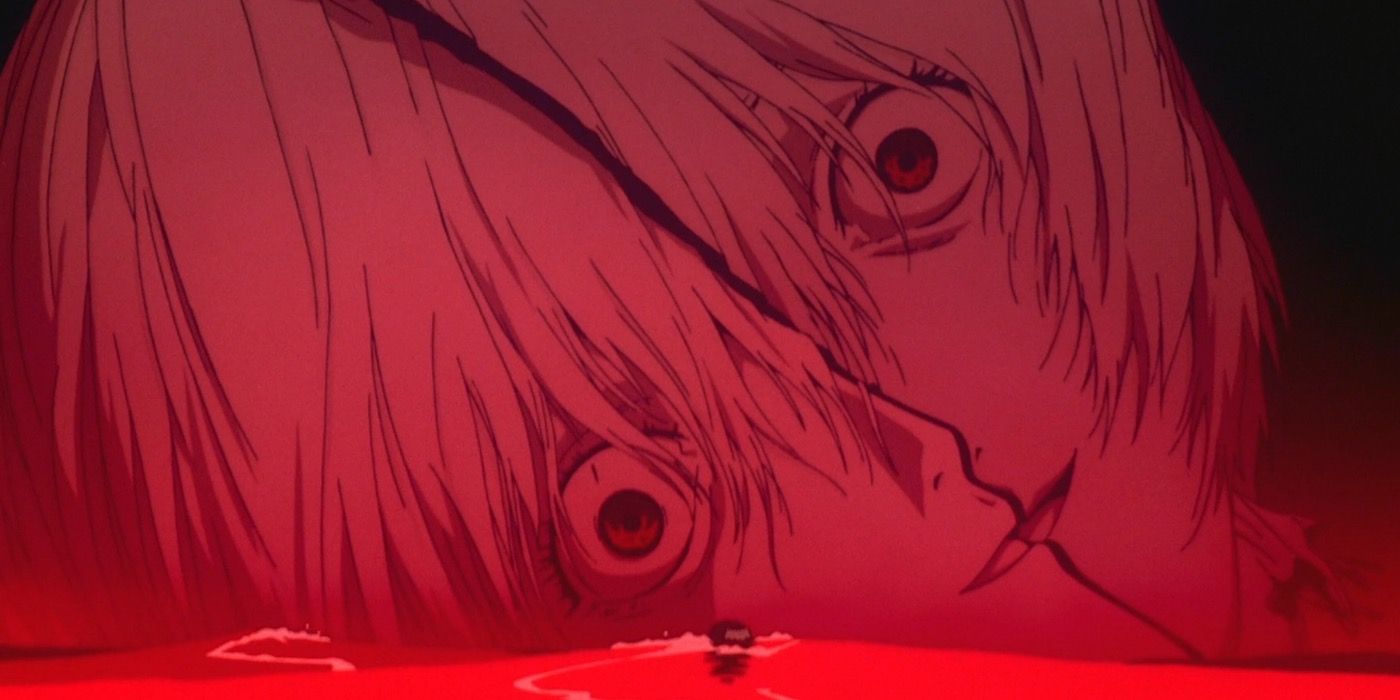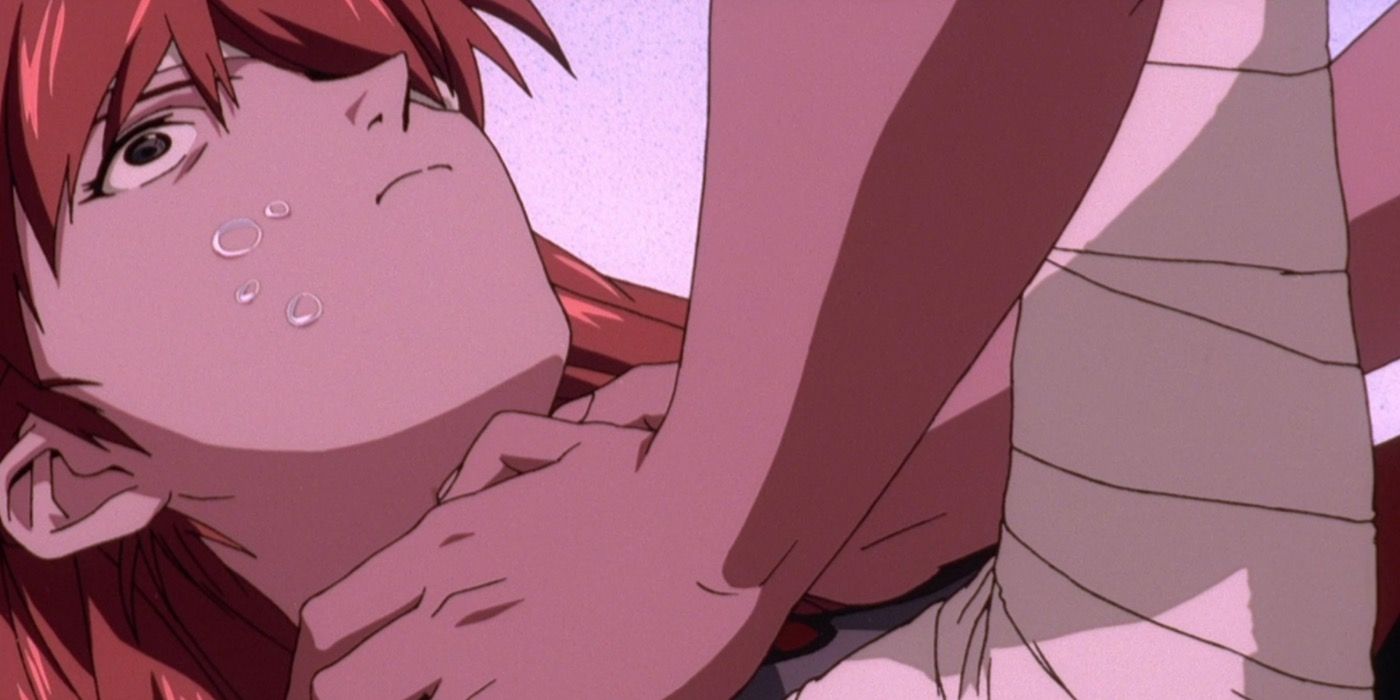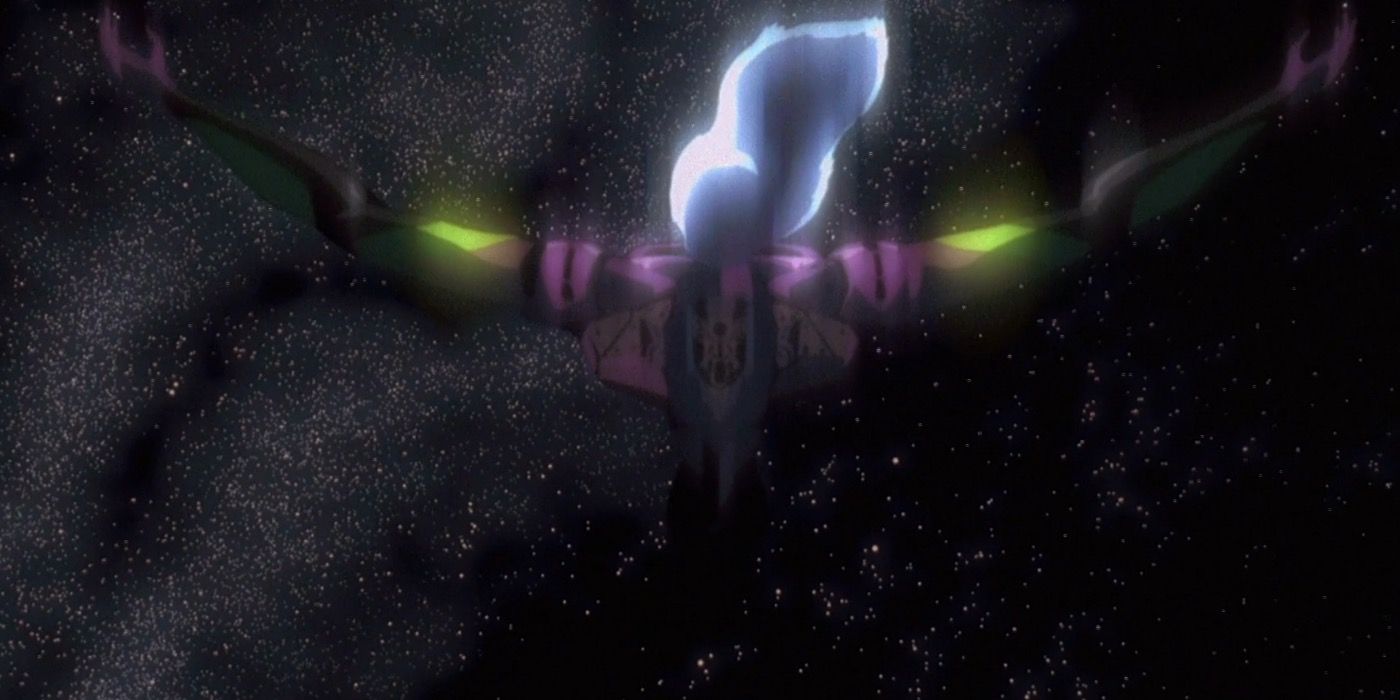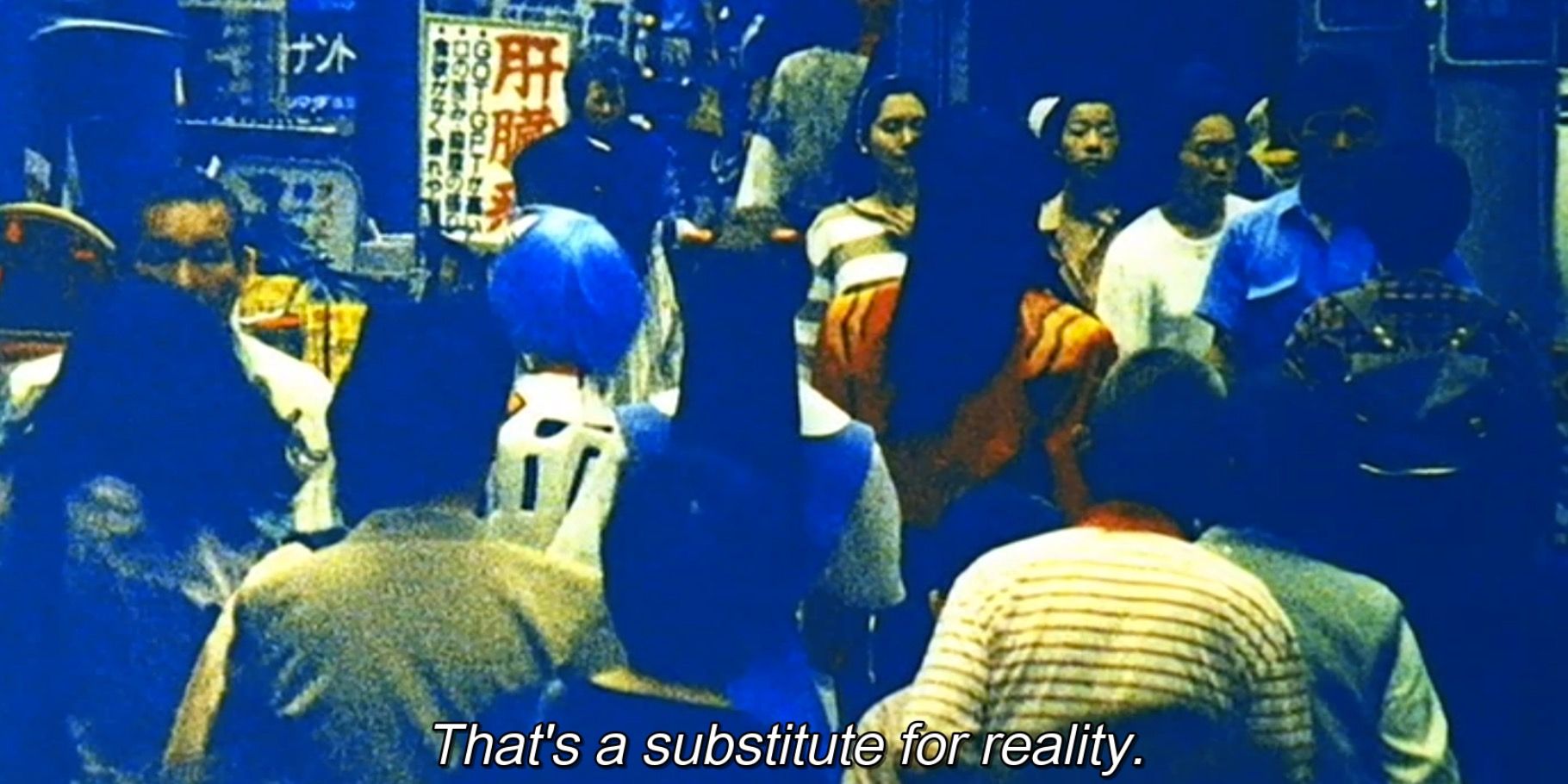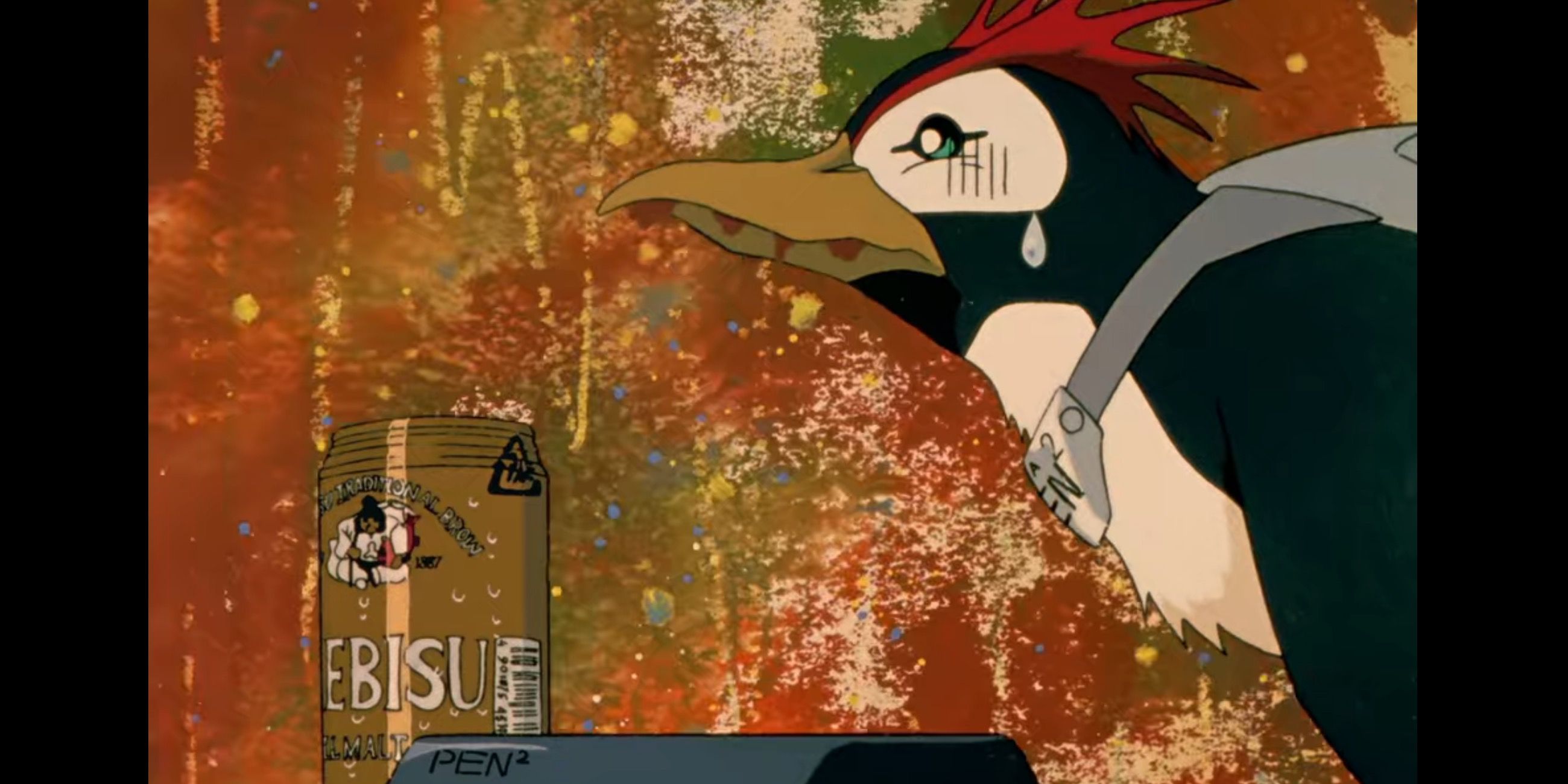The anime series by Hideaki Anno is not one to be trifled with — the emphasis of philosophical, religious, psychological, and cultural themes in Neon Genesis Evangelion can make anyone's head spin. In fact, more than two decades after it was first released, the narrative as well as its conclusion remain hotly debated (and equally inscrutable.)
Although the showrunners have come up with a franchise, rehashing and extending the story across different angles, paths, and possibilities, the core identity of Neon Genesis Evangelion remains the same: that it praises the greatness of human beings as much as it condemns them for their evil. Here are ten scenes from the iconic anime that have practically broken the mold.
10 Misato Kisses Shinji
It is never clearly expressed if Misato Katsuragi has feelings for Shinji, and if she does, the age difference alone would net her some serious consequences. He, on the other hand, is obviously attracted to her, as shown by his incredible shyness when around her.
At the end of The End of Evangelion (1997), however, Misato forces a kiss on Shinji, and he is too stunned to do anything but kiss his mentor back. It can be argued that she only performs the act to get him to safety, but at the same time, it doesn't explain why she is upset about not being "a mother for Shinji."
9 Asuka And Rei In The Elevator
This event is fascinating, because it starkly contrasts the dramatic beauty of the show's animation by giving audiences a rather long shot of Rei and Asuka standing silently in the Central Dogma elevator.
The length of this scene, combined with its total lack of action, is meant to highlight the rapidly growing tension between the two Eva pilots. Rei is the first to break the quiet, telling Asuka that she needs to reconnect with her Eva as a person, and not as the "giant toy" she thinks it is.
8 Kaworu's Descent Into Terminal Dogma
The amount of betrayal that Shinji undergoes is more than unfair, it is downright cruel. Not only has his own father rejected and abandoned him (and continues to do so), but he is not able to make any real bond with the people around him.
When Kaworu, the only person who has expressed true affection for him, exposes himself as the 17th Angel, the resulting shock is too much for Shinji to bear. When Kaworu's mission fails, he asks that Shinji be the one to kill him, adding that meeting him was the high point of his life. After considerable vacillating, Unit-01 finishes the job.
7 The Role Of Lilith
Comprehending the various plot arcs of the series is difficult enough without adding ancient alien deities into the mix. Deep within the caverns of Terminal Dogma, crucified amidst an ocean of redness, hangs the second Angel, Lilith.
She is humanoid enough, but her seven-eyed mask, bulbous white body (with baby legs popping out of each bulb), and an enormous spear impaled in her chest, are a terrifying sight. The fact that a being like her exists, and has existed for billions of years, and more than anything else, that she is the reason for all planetary life is a really hard pill to swallow.
6 Kaworu Loves Shinji
This is the most exhaustively discussed scene in the entire franchise, mostly by viewers who cannot see the possibility of queerness in one of the best anime ever made. The scene in the NERV showers is an unambiguous indication of Shinji's physical attraction for Kaworu.
Even going only by anime standards, it is rare that a character blushes unless they are either enthusiastic or shy (and the latter is almost always when they interact with their crush.) Regardless, Kaworu basically confirms it when he tells Shinji that he loves him — it doesn't matter what he means, only how the object of his affections responds to him.
5 The End Of Instrumentality
In the main storyline, Instrumentality has a very different outcome than it does in the movie, The End of Evangelion. Here, Lilith fuses with Rei, forming a gigantic being that is more or less God, given that it contains the Fruits of Knowledge as well as Life.
Unfortunately, Shinji is too terrified to spend the rest of eternity "alone", and demands that Instrumentality be reversed, negating SEELE's vision, and causing Rei/Lilith to self-destruct. This act by Shinji is not, in fact, selfish, as many consider it to be — how else would one expect a lonely, depressed twelve-year-old child to behave when faced with the burden of all humanity?
4 Shinji's Attempted Murder
At the conclusion of the film, Asuka and Shinji are the last remaining forms of life on the planet (as far as anyone knows.) As she lies on the shores of the LCL sea, Shinji decides he wants to strangle the poor girl. He only stops when Asuka gently brushes her hand against his face, leading him to break down and start weeping.
The only response she has to give to him is "How disgusting," which make even less sense than what Shinji was trying to do a few moments ago.
3 The Eternal Torment Of Yui Ikari
The sacrifice of Yuk Ikari is easily the most impactful in the story, but not the part where she agrees to assign her soul within an Evangelion. In the process of helping her son on his path to self-awareness, she undergoes great suffering (but this is nothing unexpected for her.)
Sadly, when Shinji chooses to deny Instrumentality, Unit-01 is forced to vanish into the eternal black of outer space. It is very likely that Yui will retain her consciousness for the entire time, if time even has any meaning to offer her anymore.
2 The Live-Action Sequence
This sequence in The End of Evangelion incorporates a bunch of live-action images and clips interspersed between shreds of hallucinogenic animation, including the depiction of a crowded street with the "real" versions of the characters, and an auditorium that is packed with fans of the show (who are simultaneously present and absent.)
On some level, it feels like the impact of Shinji's decision affects our world, and that it can be almost impossible to tell the difference between reality and imagination. Does this mean that the story only exists within the minds of its audience? Or that stories exist whether there are people to experience them or not?
1 Everything To Do With Pen Pen
Pen Pen's origins, backstory, and reason for being on the show are more mysterious than the actual story. He is mainly present for comic relief, for instance, freaking out over Misato's horrifying attempt at cooking or consuming people food and alcohol.
Pen Pen might be a genetically modified penguin, or he could be a different animal altogether, or, and this might sound like a stretch, he may not even be real. It's not like the things that happen in Neon Genesis Evangelion are based on the truth. Or are they?

